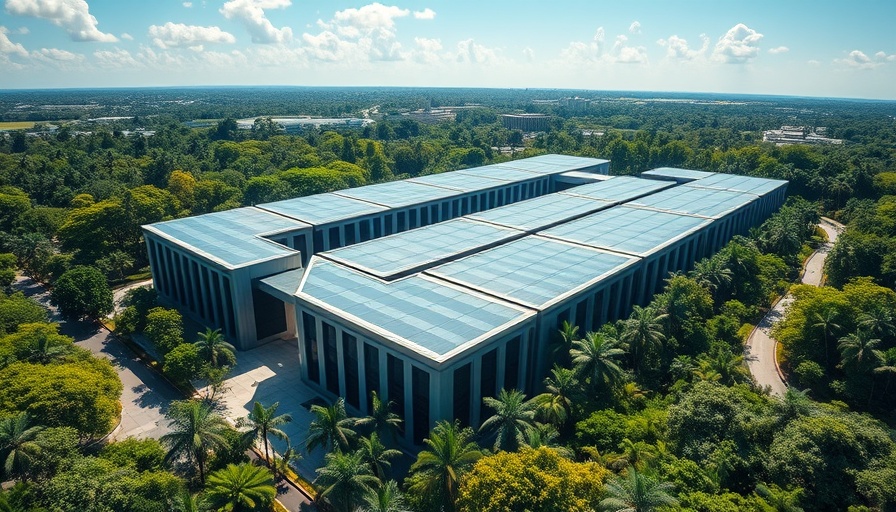
The Surge of Data Centers in Southeast Asia
Southeast Asia is witnessing an unprecedented increase in data center construction, driven by the rising demand for digital services such as video streaming, online shopping, and the rapidly expanding generative AI market. A new report from Ember reveals that by 2030, these data centers could account for up to 30% of the region's total power demand. This growth highlights the critical importance of aligning energy production with sustainable practices.
Harnessing Renewable Energy Potential
Despite the current heavy reliance on fossil fuels, the Ember report indicates a promising shift towards renewable energy sources. By the end of the decade, it’s projected that around one-third of the electricity needed for data center operations can be supplied through solar and wind power without the requirement for battery storage. The potential for harnessing these clean energy sources varies significantly across the region.
Mapping Solar and Wind Opportunities
Key countries such as Indonesia, Malaysia, the Philippines, Singapore, Thailand, and Vietnam are blessed with abundant solar and wind resources which could be pivotal in meeting the energy needs of their burgeoning data centers. For instance, Malaysia is building out its capacity with plans for significant expansions in data center infrastructure, facilitating a transition toward more sustainable energy solutions.
Policies Supporting Renewable Energy Adoption
To maximize the utilization of renewable energy, certain strategies are proving effective. Countries are advised to adopt policies like Renewable Energy Certificates (RECs), which companies can purchase to demonstrate their commitment to sustainability goals. Malaysian and Thai developers are leading the way in issuing RECs, promoting a shift towards responsible energy sourcing.
Barriers to Full Potential
However, challenges remain. The report cautions that while the potential for solar and wind energy is significant, more data is required to assess the readiness of grids to accommodate the demands of new data centers. Countries must adapt their national electricity planning to take into account the rapid growth of this sector to fully leverage their renewable resources.
Future Implications and Trends
The trend towards enhanced reliance on renewable energy not only addresses climate change concerns but also positions Southeast Asia as a competitive player in the global tech industry. As tech giants seek sustainable solutions for their operations, the responsibility falls on regional governments and stakeholders to create frameworks that support green energy investments. Failure to do so could mean missed opportunities for economic growth while simultaneously exacerbating environmental issues.
The Role of Power Purchase Agreements
Power Purchase Agreements (PPAs) have emerged as a critical tool for tech companies aiming to secure a reliable renewable energy supply. These long-term contracts make it easier for businesses to plan their energy usage sustainably and could attract more private investment in clean energy generation. Such agreements not only foster stable energy markets but also incentivize the development of new renewable projects.
As Southeast Asia moves towards a more eco-conscious future, the transformative shift in how data centers are powered is not just a technological necessity but a viable pathway to sustainable living. By addressing both energy demand and consumption through green initiatives, the region can significantly lower its carbon footprint.
For eco-conscious individuals and businesses alike, understanding the dynamics of renewable energy in Southeast Asia's data centers presents an opportunity to align more closely with sustainability practices. By engaging with green technologies, we take a step closer to a sustainable future where environmental conservation is at the forefront of progress.
Let’s prioritize sustainability in our choices and contribute to a greener planet. Whether through supporting renewable energy initiatives or adopting sustainable practices in our lives, every effort counts towards reducing climate change and enhancing our shared environment.
 Add Row
Add Row  Add
Add 



Write A Comment